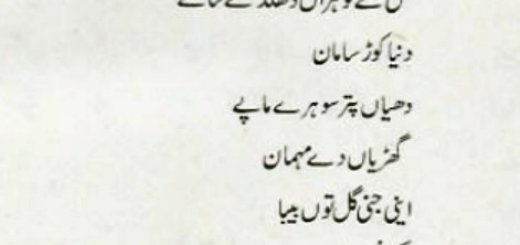The single biggest issue with the economy is that the US became non-competitive in the global economy and moved manufacturing out.
As we are heading towards presidential election season, politicians have started out and are making tall claims. Most of these claims are twisting the truth and unfortunately none of the political parties will come out and say it like it is. The biggest problem here is that people want to hear good news and when there is no good news, they do not want to hear bad news at all. The politician who comes out with facts will be ostracized by the public and would be hung out to dry.
Some of the claims that are being made need to be looked at in light of the facts.
Claim: The government’s bailout plan and the stimulus package were disasters and a waste of money.
The fact is that the crash of the mortgage backed securities market leading to a mortgage crisis and consequently a real estate crisis was an extreme event. If the government had not bailed out the large banks we would have probably seen two very large bank failures in the US in addition to the problems that WAMU and Countrywide faced.
If one or two mega banks failed in the US, it would have brought the whole financial system crashing down and would have resulted in the loss of savings of a very large portion of the population. If the US financial system were to crash, the world’s financial systems would have been impacted severely and this in turn would have started a chain reaction and brought down many other financial systems around the world.
Claim: The stimulus package did not work and no jobs were created.
The stimulus package while not perfect did work and saved several jobs that would have been lost otherwise. The current unemployment rate that is about 10% changes into the teens if we calculate it as 100 minus employment rate. The reason for this is that disgruntled workers or those who have given up their job search drop out of the system. In addition, if we add underemployment to this, the number becomes even higher. If the stimulus did not exist we would easily have seen unemployment rates between 20 and 30%.
Claim: The Fed is printing too much money that is doing no good for the economy.
Printing of money does put pressure on the Dollar and may lead to inflation. The reality is that we have seen some inflation and a devaluation of the Dollar. However, the gain from printing and spending money to create more jobs more than offsets the losses from inflation and devaluation. The Dollar has not devalued as much as it should have as it is still the world’s reserve currency and is a safe haven for international investors. This results in significant inflows of money into the US.
Claim: I can create more jobs than my opponent.
In the current scenario, no one can create jobs out of thin air. Jobs are driven by investment in labor intensive industries which in turn are driven by demand. Global demand is flat and US demand has fallen. The only way to create jobs is to invest in infrastructure projects. This in turn will force the government to borrow and the deficit will grow.
Claim: Economies can grow indefinitely.
This is not correct. For an economy to grow, some other economy will have to shrink. It is a zero sum game. There is a limited demand and limited resources. Whoever can produce goods and services to meet this demand will grow. The rest of the economies will contract.
Claim: The US is becoming a socialist state.
Most developed Western economies have a socialist flavor. Pure capitalism favors the rich and the powerful. If you have the money and the means and power to grow your wealth, it is all right for you to do so at the expense of others. In a pure capitalist economy, the rich will continue to grow richer and the poor poorer. Programs like universal healthcare, social security, Medicare, Medicaid, state provided education and unemployment benefits are all socialist in nature. In fact capitalist economies are successful with a happier populace when a number of social programs are put in place.
Claim: Deficits are growing and this must stop.
This statement is partially correct. In the long run budget deficits are bad as governments have to borrow to fund the deficit. This in turn weakens the currency and raises interest rates. In the current scenario interest rates are at a record low and inflation is in check. In order to keep the economy going, the government cannot stop spending on certain programs. The solution is to have some increase in taxes and to cut costs on certain items. We have a number of wars going on that are causing tremendous pressure on expenses. This expense has to be reduced. In addition, bureaucratic expenses need to be analyzed and reduced.
Now let us look at some of the major causes of the economic crisis and possible solutions.
The single biggest issue with the economy is that the US became non-competitive in the global economy and moved manufacturing out. The non-competitiveness came about due to poor manufacturing quality and high cost. This in turn forced manufactures to move their manufacturing facilities to other countries. Another factor albeit smaller is the taxation system that allows large corporations to get away from paying taxes on some of their offshore income as long as they keep the income overseas.
In the last two to three decades we have become used to living beyond our means and spending more than we earn. Loose control on financial institutions and cheap funding spurred this lifestyle. The idea of everyone in America owning a home further exacerbated the mortgage crisis.
Speculation in real estate and low interest rates led to over- building and this in turn created the real estate bubble. Growth in housing happens due to three reasons, one increase in population, two growth in new household formation and three people upgrading their homes. In this case the growth in housing was driven by upgrading and speculation leading to a huge increase in investment properties. In addition there was a lot of home equity withdrawal because of the sharp increase in home prices. This could not be sustained.
Another major issue is the huge increase in defense spending which results in diversion of funds from development and social programs.
Now we come to the difficult question of the solution to the economic woes. In order to come up with a possible solution we have to look at some facts:• Americans in general do not save enough and live beyond their means.
• The housing market is not going to recover for a long time.
• The US is not competitive because of high labor costs and overheads.
• Manufacturing that created a lot of jobs has almost disappeared.
• The work ethic has changed over the years. Individuals see many things as their right and are not willing to do certain jobs.There is no easy solution to the problem. In the short run the government needs to keep on spending and focus on the infrastructure. One area of focus may be to build high speed rail services for commuters in order to reduce dependence on cars and consequently on oil.In the long term we have to bring manufacturing jobs back to the US. This can only happen if we improve the quality of the goods that we produce and reduce the labor costs. Quality control can be fixed more easily than the costs. Everyone needs to take salary/wage cuts. The minimum wage rate will need to be reduced and executive compensation curtailed. Home ownership is already very high and does not need to grow. There is no good number, but at over 60% of the households owning their homes, we do not need to encourage growth in home ownership.The bottom line here is that things will not turn around soon and that all of us will have to do some belt tightening to help in bringing the economy to a point where it sees sustainable growth and supports the lifestyle of the nation.












